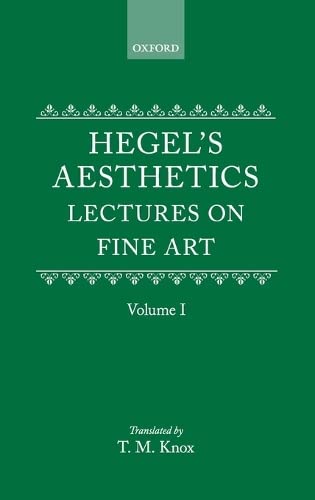

Full description not available
A**R
Essential reading for art theorists and historians.
Hegel's aesthetic theories were way ahead of their time as they postulated art without a necessary object, but art that would be self-consciously historical and presage the dialectic by which we understand the complexity of art production in our own time. The book is a brilliant demonstration - perhaps written ( along with the second volume) as a last testament - of the radical immanence of Hegel's metaphysics to the extent that it is possible to say that Hegel, himself, would be a painter. This first volume is a powerful treatise on the fate of art in the context of history's (and Hegel's own) 'will to power'.
Trustpilot
1 day ago
3 weeks ago